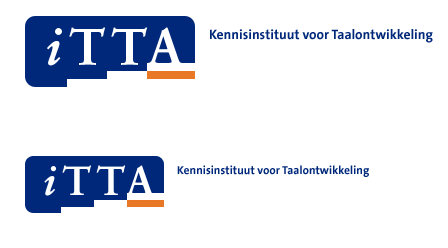How to develop learner autonomy
Non-directive coaching can help adults to develop the skills, strategies and confidence they need to become autonomous literacy an language learners.
Five competences
Autonomous (or self-directed) learning is based on five core competences. These include the ability to:
- Identify your own learning needs
- Set learning goals to address those needs
- Identify resources (human, as well as material) to help you achieve your learning goals
- Apply appropriate learning strategies
- Evaluate the outcomes of your learning
These competences are underpinned by confidence – confidence to take responsibility for your own learning and confidence to persist in the face of difficulty.
To help adults become autonomous literacy and language learners, we need to help them apply these competences, with confidence, to their literacy and language learning.
Non-directive coaching
Non-directive coaching is a well-established approach specifically designed to help people take charge of their own learning. It uses reflective questioning to help people problem-solve for themselves.
The coach acts as a non-judgemental, but highly attentive, 'critical friend', helping the learner to gain clarity about their learning needs and objectives and how best to achieve those objectives, given the realities of the learner's situation. By taking a close, supportive interest in the learner's progress, the coach builds the learner's confidence and helps the learner to persist in the face of difficulty.
The coach's aim is first and foremost to enable the learner to take full personal responsibility for their own learning. The coach does this by treating the learner at all times as a resourceful adult, fully capable of developing their own solutions – even when the learner doubts their own ability. By refraining from giving advice or instruction to the learner, the coach gives the learner space to devise, test and develop their own personal learning strategies.
In these ways, coaching helps people become more effective autonomous learners.
We can apply this approach to help adults develop the skills, strategies and confidence they need to take charge of their own literacy and language learning.
Coaching to develop autonomous literacy and language learners
Instead of trying to solve the learner's literacy and language problems by teaching the learner literacy and language skills, the coach helps the learner to problem-solve for themselves. The coach helps the learner first to define their own literacy and language learning objectives and then to frame a self-directed 'learning project' achieve those objectives. The learner pursues their project outside of their coaching sessions, using the sessions to report back to their coach. The coach uses the sessions to help the learner problem-solve where necessary and also to monitor and evaluate their own progress – refining both their learning objectives and their learning strategies as appropriate.
In this way, the coaching helps the person to become a more confident and effective literacy and language learner.
As the proverb says, Give a person a fish, feed them for a day; show them how to catch a fish, feed them for a lifetime.
Note that the coach needs no knowledge of literacy or language teaching to help the learner, only the ability to help the learner problem-solve for themselves.
Further reading and tools for the coach
Competency table for autonomous learning
For a more detailed specification of the knowledge, skills and behaviours that define autonomous learning, see the table Competences for autonomous literacy learning (pdf) or in Dutch/Nederlands: Competenties voor autonoom leren.
Coach-trainers can use this table to communicate what we mean by autonomous learning.
Coaches can use it to guide their practice, including helping learners to recognise and name autonomous behaviours.
Please note that it is a competency specification, not a curriculum.
Information about coaching
Short, introductory readings (with bitesize reflective learning questions) to help anyone new to coaching and self-directed learning, developed to support the 2015 pilots:
- Pre reading for coaches 1 (2015) (pdf) in English
- Pre reading for coaches 2 (2015) (pdf) in English
- Pre reading for coaches 3 (2015) (pdf) in English
- Pre reading for coaches 4 (2015) (pdf) in English
Short introductory readings on coaching to enable self-directed literacy and language learning, developed following the pilots:
- Pre reading for coaches 1 (2016) in English (pdf)
- Pre reading for coaches 2 (2016) in English (pdf)
Manuals for coaches
Two manuals for coaches were produced: an English Coach Manual and a Dutch Coach Manual.
Both aim to provide coaches with key principles and tools to develop their coaching.The English manual provides documents to keep a record of and reflect on coaching sessions.
ALL-SR partner Alexander Braddell has published a Citizens curriculum guide to non-directive coaching, using information and results from the project. In this guide the terminology of coaching is explained, as well as the different roles of a teacher and a coach. Furthermore this guide contains coaching techniques and prompts for reflective discussion. A must-read for everyone who wants to develop as a coach.
Coach competences
What knowledge, skills and behaviours do you need to coach effectively?
Here is a short list of coaching competences: Short list coach competences (pdf).
In Dutch/Nederlands: Lijst coach competenties (pdf).
Coaches can use it as a tool for reflection and learning.
Coach-trainers can use it to communicate what we mean by 'coaching'.
Ten useful coaching questions
Download 10 useful questions for coaches to use with learners in coaching sessions.
Dutch/Nederlands version: 10 handige vragen voor coaches.
Coaching process visualized
At-a-glance overview of the coaching process: Coaching process diagram (pdf).
Useful to communicate the process.
Interested in practical resources for the learner?
See our web page: Practical resources.
